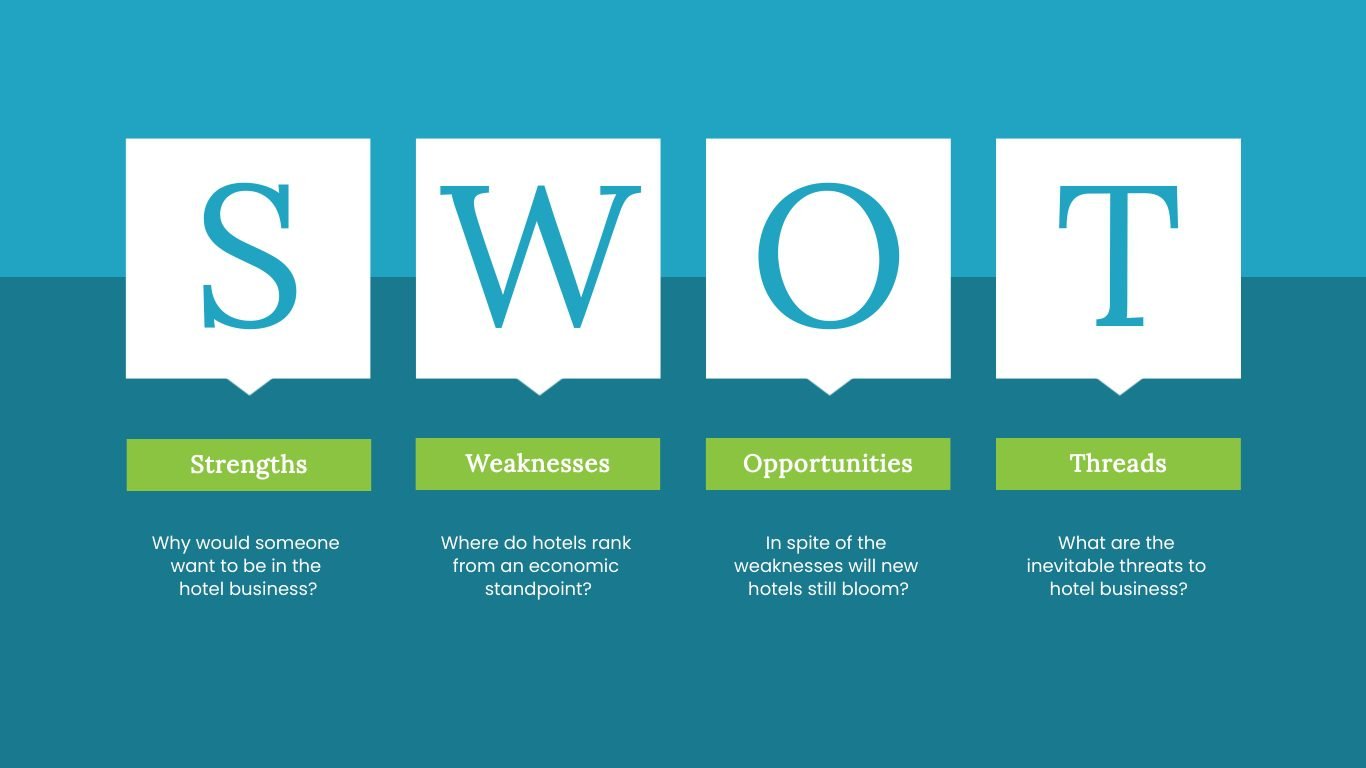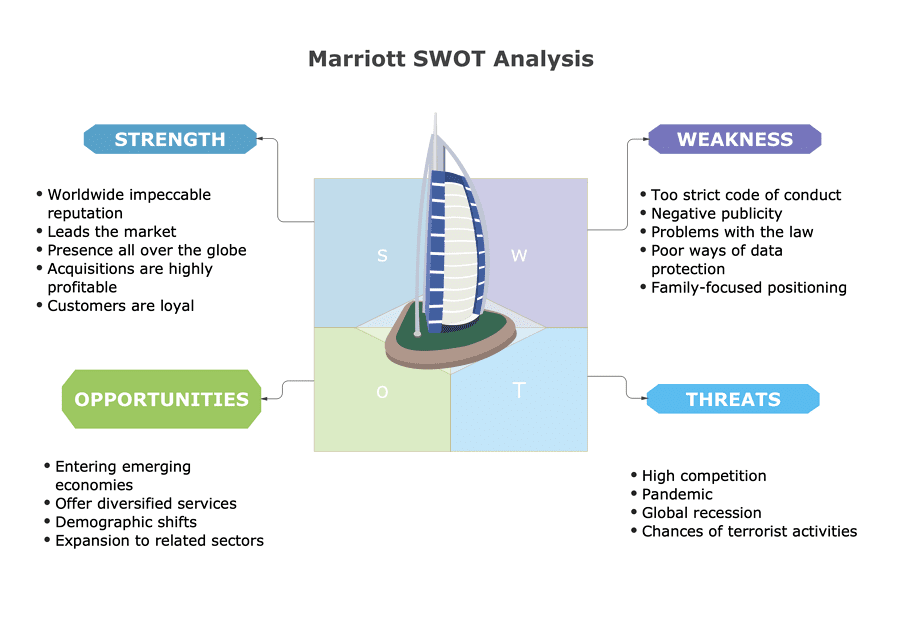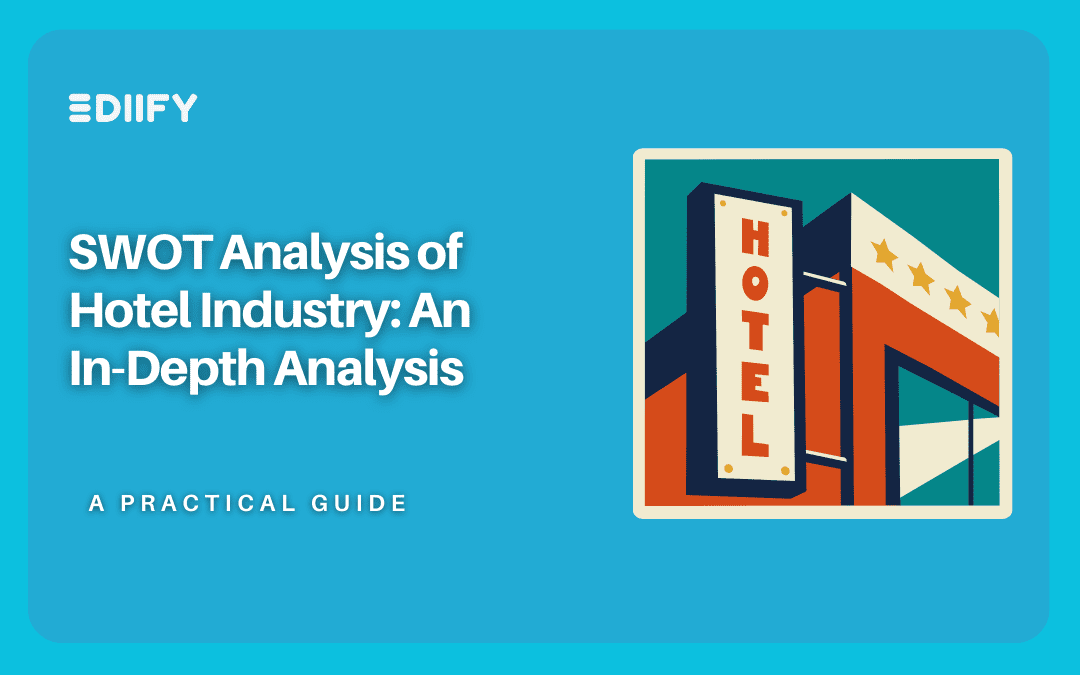Introduction:
The hotel industry is a vital component of the global hospitality sector, providing a wide range of services to meet the needs of travelers and tourists. Just like any other business, a comprehensive understanding of the internal and external factors influencing operations is imperative for strategic planning. The SWOT analysis stands out as an effective tool, offering insights into the swot analysis of the hotel industry.

Strengths:
The hotel industry possesses numerous inherent strengths that contribute to its resilience and success. A key strength lies in its ability to offer a diverse range of accommodation options, catering to different preferences and budgets. Whether luxurious resorts, boutique hotels, or budget motels, the industry effectively captures a diverse market.
Additionally, the industry excels in delivering exceptional customer service, prioritizing personalized experiences and top-notch amenities. Such efforts often result in repeat business and positive word-of-mouth marketing, fostering a loyal customer base.
The global reach of the hotel industry is another significant strength. Strategically located in various tourist destinations, business hubs, and cultural centers, hotels can tap into different markets and capitalize on the growing trends in travel.
Take a look at the blog below on the benefits of swot analysis for your business
https://ediify.com/the-benefits-of-swot-analysis-for-your-business/
Weaknesses:
Despite its strengths, the hotel industry is not immune to weaknesses. One significant challenge is its vulnerability to economic downturns. During periods of recession, discretionary spending on travel and accommodation tends to decline, impacting hotel revenues. Additionally, the highly competitive nature of the industry makes maintaining high-quality service standards financially demanding.
Moreover, dependence on external factors such as weather, political stability, and global health crises poses significant challenges. Natural disasters and geopolitical events can disrupt travel plans, leading to cancellations and reduced occupancy rates.
Take a view of the below blog the digital marketing a comprehensive analysis
https://ediify.com/digital-marketing-a-comprehensive-analysis/
Opportunities:
The hotel industry is well-positioned to capitalize on various opportunities emerging in the evolving landscape of global tourism. Technological advancements offer a chance for hotels to enhance efficiency and customer experience through online booking platforms, smart room features, and personalized services.
Sustainable tourism is gaining momentum, providing hotels with an opportunity to adopt eco-friendly practices and attract environmentally conscious travelers. Furthermore, the rise of experiential tourism opens doors for hotels to offer unique and immersive experiences that go beyond traditional accommodation.
Collaborations with local businesses, cultural institutions, and event organizers present opportunities for hotels to tap into niche markets and create diversified revenue streams.
Take a look at the below blog the Components of swot analysis
https://ediify.com/components-of-swot-analysis-a-comprehensive-guide/
Threats:
In the face of opportunities, the hotel industry must navigate potential threats that could impact its stability. The rise of alternative accommodation options, such as vacation rentals and home-sharing platforms, poses a competitive threat. The sharing economy has altered consumer behavior, necessitating hotels to adapt to changing preferences.
External factors like global economic uncertainties, political instability, and public health crises can pose immediate threats to the industry. Unforeseen events like natural disasters, terrorist attacks, or pandemics can disrupt travel patterns, leading to significant financial losses for hotels.
Take a view on the below blog The benefits of swot analysis
https://ediify.com/unlocking-the-benefits-of-swot-analysis-a-comprehensive-guide/
Conclusion:
In conclusion, the SWOT analysis of the hotel industry unveils a complex landscape where strengths and weaknesses, opportunities, and threats coexist. To thrive in this dynamic environment, hotels must leverage their strengths, address weaknesses, capitalize on emerging opportunities, and develop contingency plans to mitigate potential threats. Strategic adaptation and a keen understanding of market trends will be key to sustaining growth and ensuring the continued success of the hotel industry.

For more information visit the mentioned website


